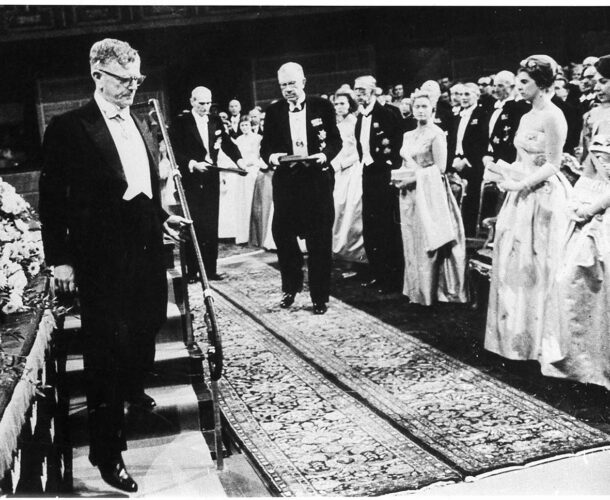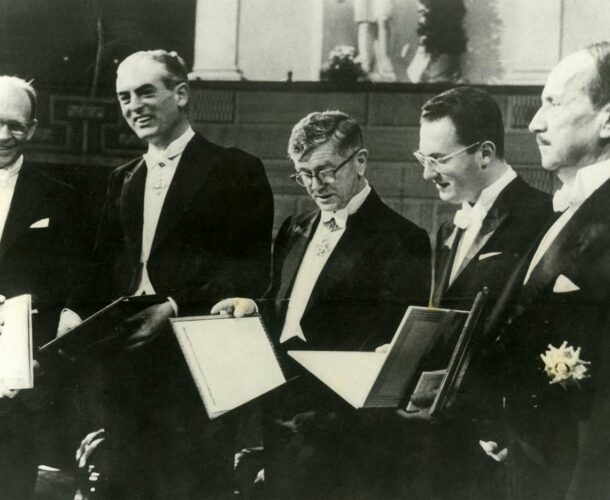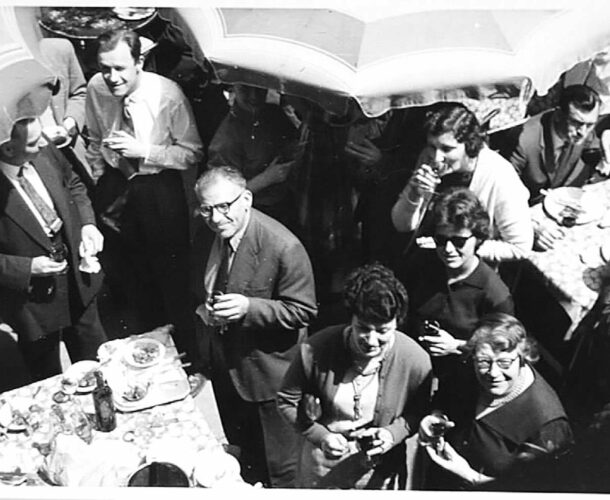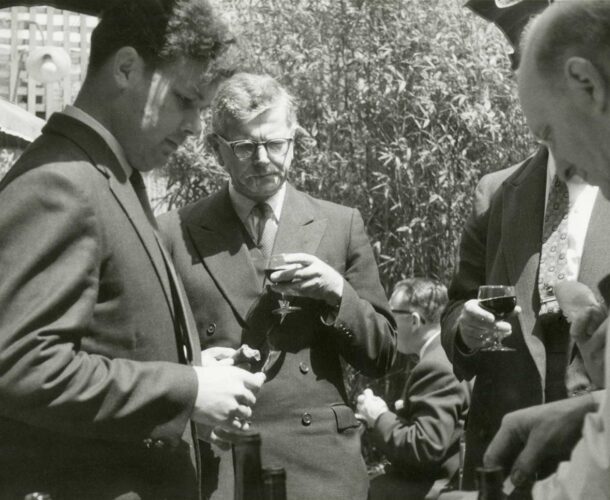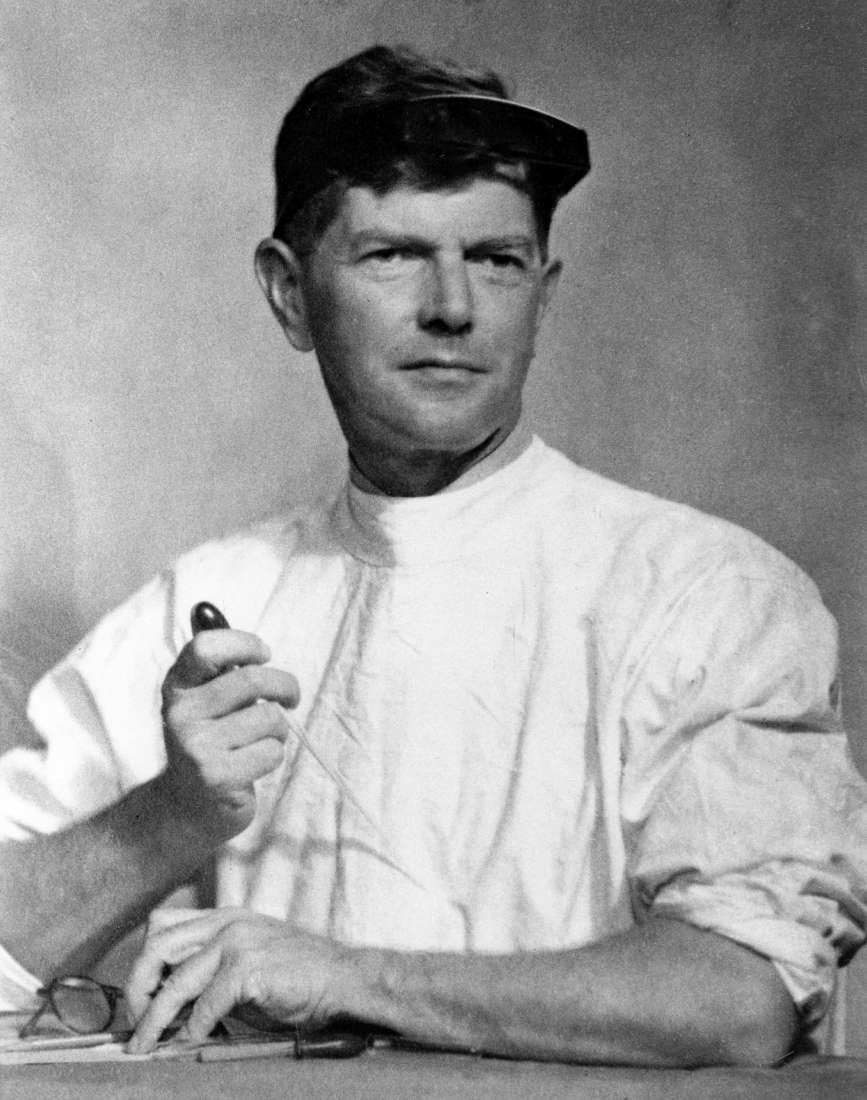Sir Frank Macfarlane Burnet and Sir Peter Medawar are jointly awarded the 1960 Nobel Prize in Physiology or Medicine, for the discovery of acquired immunological tolerance.
The discovery shows the immune system learns to recognise and tolerate its own cells, revolutionising our understanding of immunity and rejection.
According to the Nobel Prize organisation, “it is impossible to give, in a brief space, an adequate idea of the range and fundamental importance of Burnet’s work.”1
An Australian Nobel Prize
Burnet is celebrated for being the first Australian to win a Nobel Prize for work undertaken within Australia.
At a time when most of his scientific contemporaries had pursued opportunities overseas, Burnet had chosen to remain in Australia, declining lucrative offers from leading research institutes in the UK and US. Over the course of his 60-year career he contributed profoundly to building the field of Australian medical science.
On the announcement of Burnet’s Nobel Prize in 1960, Prime Minister Bob Menzies says: “The honour conferred on Sir Macfarlane Burnet is an honour which every good Australian will enjoy”.2


